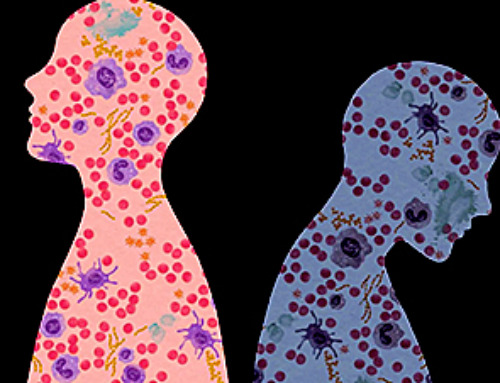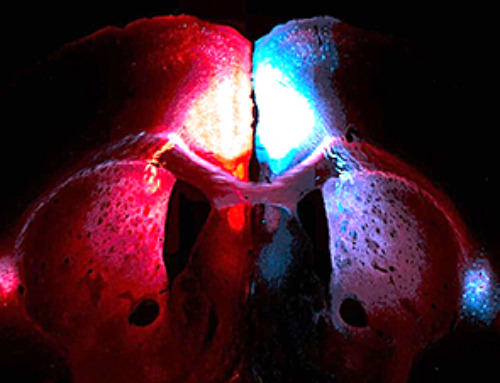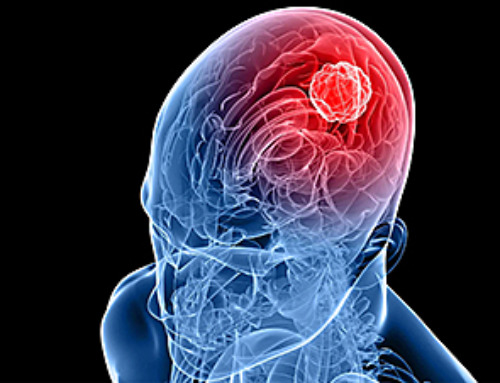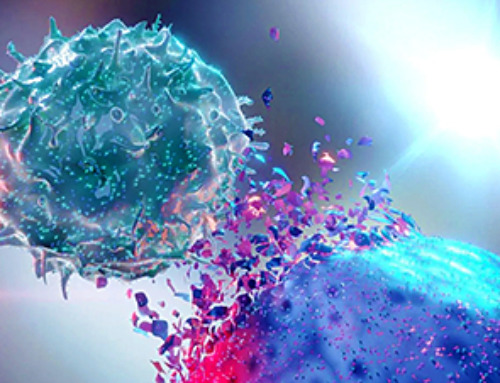In a recent study, it was shown that people with long Covid have had physical changes to their brains several months after experiencing the initial infection. The study included MRIs of patients who continued to suffer from symptoms six months later, which showed clusters of mineral deposits in the brain linked to fatigue and headaches.
The changes in the circulation of tiny blood vessels in these areas can create changes in white matter. As a result, the brain finds it harder to transfer information, which can cause difficulties with memory, mobility and balance.
The Indian researchers behind the study have said it is the first study to reveal physical changes to the brain caused by Covid-19 although other studies have shown that it can cause changes to the heart, lungs and other organs, as per the Daily Mail.
Long Covid
Long Covid is not a specific condition but rather an array of varying symptoms after you've cleared the initial infection. However, the NHS describes the most common symptoms as:
- Extreme tiredness (fatigue)
- Shortness of breath
- Loss of smell
- Muscle aches
It has been estimated by the Center for Disease Control and Prevention (CDC) that one in five who have had Covid-19 will suffer from long covid to some extent and whilst there is ongoing research into the illness, there is still no known cure. Sufferers are mostly under the age of 50 and women are more likely to be affected than men.
Brain changes
What has been discovered in this new study is that MRI scans found deposits of calcium, iron and deoxygenated blood in the brainstem and frontal lobe of patients with long Covid six months after they had cleared the initial infection.
The scans went on to discover, according to Time:
They found that most of the people who had recovered from COVID-19 had changes in the circulation of tiny blood vessels in the frontal lobe and brain stem areas, which are involved in higher order cognitive skills such as language expression and voluntary movements.
They found that most of the people who had recovered from COVID-19 had changes in the circulation of tiny blood vessels in the frontal lobe and brain stem areas, which are involved in higher order cognitive skills such as language expression and voluntary movements.
Sapna Mishra, a PhD candidate at the Indian Institute of Technology (IIT) and one of the lead researchers of the study said 'these brain regions are linked with fatigue, insomnia, anxiety, depression, headaches and cognitive problems' as per the Daily Mail.
Studies will now focus on just how long these changes last and so will be looking at a larger time frame to find out if the effects are temporary or permanent.
News
This Is Why the Same Virus Hits People So Differently
Scientists have mapped how genetics and life experiences leave lasting epigenetic marks on immune cells. The discovery helps explain why people respond so differently to the same infections and could lead to more personalized [...]
Rejuvenating neurons restores learning and memory in mice
EPFL scientists report that briefly switching on three “reprogramming” genes in a small set of memory-trace neurons restored memory in aged mice and in mouse models of Alzheimer’s disease to level of healthy young [...]
New book from Nanoappsmedical Inc. – Global Health Care Equivalency
A new book by Frank Boehm, NanoappsMedical Inc. Founder. This groundbreaking volume explores the vision of a Global Health Care Equivalency (GHCE) system powered by artificial intelligence and quantum computing technologies, operating on secure [...]
New Molecule Blocks Deadliest Brain Cancer at Its Genetic Root
Researchers have identified a molecule that disrupts a critical gene in glioblastoma. Scientists at the UVA Comprehensive Cancer Center say they have found a small molecule that can shut down a gene tied to glioblastoma, a [...]
Scientists Finally Solve a 30-Year-Old Cancer Mystery Hidden in Rye Pollen
Nearly 30 years after rye pollen molecules were shown to slow tumor growth in animals, scientists have finally determined their exact three-dimensional structures. Nearly 30 years ago, researchers noticed something surprising in rye pollen: [...]
NanoMedical Brain/Cloud Interface – Explorations and Implications. A new book from Frank Boehm
New book from Frank Boehm, NanoappsMedical Inc Founder: This book explores the future hypothetical possibility that the cerebral cortex of the human brain might be seamlessly, safely, and securely connected with the Cloud via [...]
How lipid nanoparticles carrying vaccines release their cargo
A study from FAU has shown that lipid nanoparticles restructure their membrane significantly after being absorbed into a cell and ending up in an acidic environment. Vaccines and other medicines are often packed in [...]
New book from NanoappsMedical Inc – Molecular Manufacturing: The Future of Nanomedicine
This book explores the revolutionary potential of atomically precise manufacturing technologies to transform global healthcare, as well as practically every other sector across society. This forward-thinking volume examines how envisaged Factory@Home systems might enable the cost-effective [...]
A Virus Designed in the Lab Could Help Defeat Antibiotic Resistance
Scientists can now design bacteria-killing viruses from DNA, opening a faster path to fighting superbugs. Bacteriophages have been used as treatments for bacterial infections for more than a century. Interest in these viruses is rising [...]
Sleep Deprivation Triggers a Strange Brain Cleanup
When you don’t sleep enough, your brain may clean itself at the exact moment you need it to think. Most people recognize the sensation. After a night of inadequate sleep, staying focused becomes harder [...]
Lab-grown corticospinal neurons offer new models for ALS and spinal injuries
Researchers have developed a way to grow a highly specialized subset of brain nerve cells that are involved in motor neuron disease and damaged in spinal injuries. Their study, published today in eLife as the final [...]
Urgent warning over deadly ‘brain swelling’ virus amid fears it could spread globally
Airports across Asia have been put on high alert after India confirmed two cases of the deadly Nipah virus in the state of West Bengal over the past month. Thailand, Nepal and Vietnam are among the [...]
This Vaccine Stops Bird Flu Before It Reaches the Lungs
A new nasal spray vaccine could stop bird flu at the door — blocking infection, reducing spread, and helping head off the next pandemic. Since first appearing in the United States in 2014, H5N1 [...]
These two viruses may become the next public health threats, scientists say
Two emerging pathogens with animal origins—influenza D virus and canine coronavirus—have so far been quietly flying under the radar, but researchers warn conditions are ripe for the viruses to spread more widely among humans. [...]
COVID-19 viral fragments shown to target and kill specific immune cells
COVID-19 viral fragments shown to target and kill specific immune cells in UCLA-led study Clues about extreme cases and omicron’s effects come from a cross-disciplinary international research team New research shows that after the [...]
Smaller Than a Grain of Salt: Engineers Create the World’s Tiniest Wireless Brain Implant
A salt-grain-sized neural implant can record and transmit brain activity wirelessly for extended periods. Researchers at Cornell University, working with collaborators, have created an extremely small neural implant that can sit on a grain of [...]






















